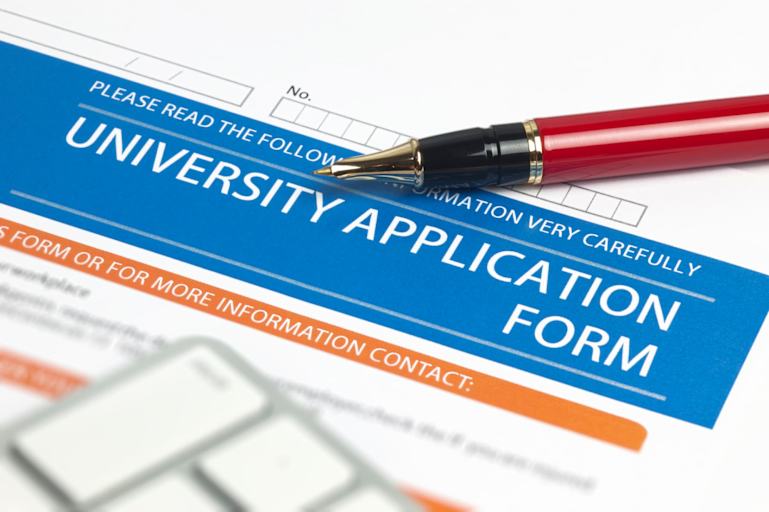Early Action vs. Early Decision: How to Choose

- Early action and early decision allow you to apply earlier than regular decision.
- Applicants receive admission decisions sooner, usually starting in mid-December.
- You can typically apply to multiple schools under an early action plan.
- Early decision, however, is a binding agreement between you and one college.
Applying to college under early action and early decision can help ease the stress of college applications — and get you an admission decision faster. While the timeline varies, most colleges set November deadlines for early action and early decision, and they send out decisions around mid-December.
Read on to learn more about applying to college early and the differences between early action and early decision.
What Is Early Action?
Early action is a nonbinding option that allows students to apply to colleges and get an admission decision earlier than regular decision applicants.
Early action applications are usually due in early or mid-November. Schools normally send out early action decisions from December to February and give admitted students until May 1 — the National College Decision Day — to accept or decline admissions.
Typically, you can apply for early action at multiple schools. Some competitive institutions, including Ivy League schools, offer restrictive early action for students to demonstrate strong interest in a school. This means you must pursue early action with only one school, but you may apply under regular decision at other universities.
What Is Early Decision?
Early decision is a binding commitment where you agree to attend the school you are applying to if admitted. You can only apply to one school under early decision.
Typically, applications for early decision are due in early November, with decisions coming out in December. If accepted, you must enroll and withdraw any applications to other schools. One of the only exceptions allowing you to decline admission is if the school’s financial aid package fails to meet your needs.
If you are rejected, you may still have a chance for admission through the regular application pool, however, most early decision rejections are final.
Early Action vs. Early Decision: Which Is Right for You?
Here are some questions to ask yourself before deciding whether to apply early action or early decision to a college.
Do You Have a Clear Top-Choice College?
If you’re committed to attending your dream college and it offers an early decision plan, then you’ll likely benefit from applying early decision. However, if you have multiple top-choice schools and you’d be happy to attend one of several colleges on your list, applying early action or regular decision may be the better choice.
Are You a Competitive Applicant?
Early admissions processes, particularly early decision, work best for students who know what their top-choice colleges are and who are competitive applicants with strong letters of recommendation, a high GPA, a rigorous course load, a well-written personal statement, and (if required) competitive SAT/ACT scores.
To determine whether you’re competitive, check your top-choice school’s official website. If you exceed that college’s first-year profile for high school GPA, class rank, and standardized test scores, either early action or early decision may be a smart move.
Getting a college counselor’s help to determine whether you’re a competitive applicant for your top schools might be a smart choice. They’ll be able to advise you on the competitive combination of academics, extracurriculars, and communication skills for each school.
How Much Financial Aid Does the School Typically Offer?
You should also consider a school’s average or projected financial aid package before applying early action or early decision. Though early admission schools do their best to provide a package best suited to your family’s financial situation, some have larger endowments and can, therefore, offer more competitive packages.
Additionally, if you apply early decision, you won’t get to compare aid packages, so confirm ahead of time that the school should be able to offer you sufficient aid.
Do You Have Enough Time to Prepare Your Application?
Applying early to one or more schools means gathering all your application materials earlier than if you’d applied regular decision. Look at your fall schedule and consider whether you may face any obstacles to submitting a college application by November.
A college counselor may be a good resource when applying to schools early. They can help you assemble your application materials to meet the application deadlines and strategize on where to apply early action versus early decision.
What Early Admission Plans Do Your Target Schools Offer?
Sometimes you don’t get much of a decision in terms of whether to apply early action or early decision. Most colleges and universities offer just one of the two. Some schools, however, offer both early action and early decision plans.
Learn More About Empowerly’s College Admissions Counseling
Why Should You Apply to College Early?
There are several benefits to applying to college either early action or early decision.
You’ll Get an Earlier Admission Decision
While applying to college early means your application will be due earlier than regular admissions, you can also expect to get your admission decision sooner, typically by mid-December. This can streamline the college decision process and give you more time to figure out other large decisions regarding college, such as the cost of college and living arrangements.
You Might Have a Better Chance of Getting Accepted
Applying early to colleges may raise your chances of being accepted at certain institutions.
At Brown University, 17.9% of its early decision applicants were accepted to the class of 2029, while the regular decision acceptance rate was just 4%. Similarly, at Dartmouth College, the early decision acceptance was 17%, while the acceptance rate for the entire class of 2028 was just 5.4%.
And at Harvard University, the early action rate for the class of 2028 was 8.74%, compared to a total admissions rate of 3.6%.
While Dartmouth College has admitted to letting in higher percentages of early decision applicants than regular decision applicants, both Harvard and Brown assert that students who apply early do not have an advantage. Harvard attributes the higher admissions rate for restrictive early action students to the quality of the applicants, rather than their timing.
You’ll Have More Time to Reassess if You’re Not Admitted
While applying to schools early may help your chances of being accepted, it is not a guarantee. However, applying early allows you to consider all of your options if you are denied admission under early admissions.
Regular decision deadlines are usually in January, giving you plenty of time to submit additional applications. Acceptance decisions under regular decision are typically released during March and April.
Explore More College Resources

160 Colleges With No Application Fee
Find U.S. colleges with no application fee and learn more about how to save during the college application process.

by Jordan Stewart-Rozema, Ph.D.
Updated July 9, 2025


